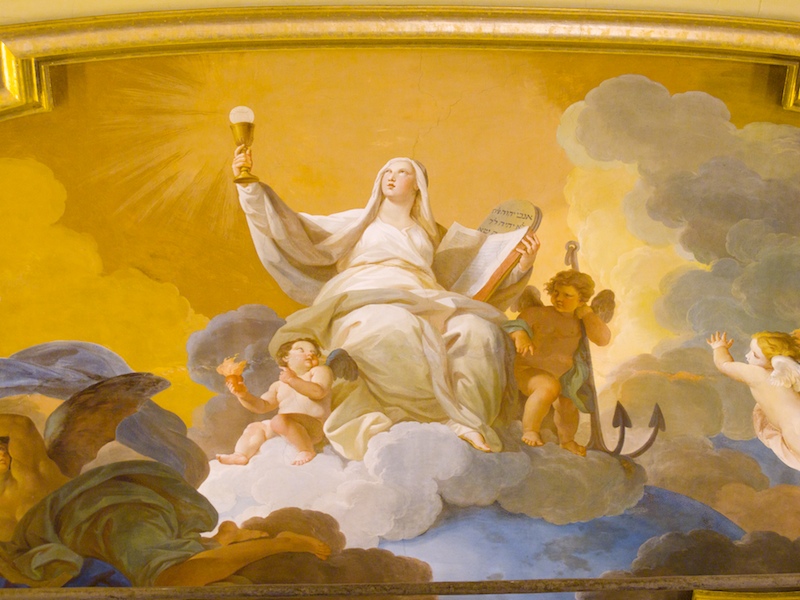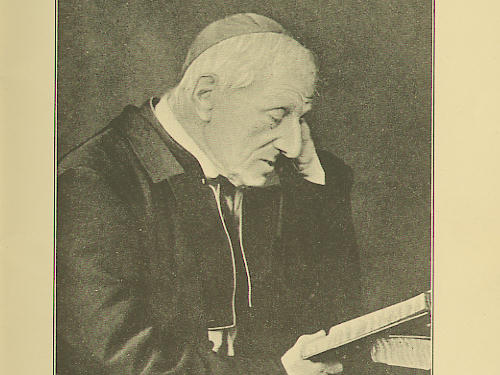We don’t like to speak the truth about evil because we’re going to hurt somebody. Let me tell you, you are going to hurt somebody, but that somebody is God. If you would rather hurt God than your neighbor, there is something wrong with your spirituality. It’s your obligation to speak the truth and everyone can take it or leave it. But truth must be in us. We live in such poverty of the truth today” (Mother Angelica).
I was recently asked to comment on an article that was posted on the Internet. Although I hadn’t read it before, a strong feeling of déjà vu came over me as I digested the familiar details…Thousands of people are leaving the Catholic Church to join churches with less “rules” and unless changes are made, she will continue to lose people. This may come as a surprise to some of you, but I wholeheartedly agree that changes must be made. However, I strongly disagree with the notion that it is the Church who must change. What needs to change is the tendency for some well-meaning individuals to replace clearly defined Church teaching with a vague, fluffy theology that is carefully designed to not offend anyone.
 In an attempt to reach out to alienated Catholics and “stop the bleeding”, many Catholic publications, religious education teachers, priests and deacons have taken it upon themselves to “water down” or sanitize Catholic doctrine so that it is less offensive and more politically correct. Their fear is that, unless this is done, the Church will continue to lose people. While I commend their intentions and agree that we must reach out, withholding or ignoring the more challenging teachings of the Church does more harm than good. Rather than change or ignore the truth, we should instead take the lead of our Holy Father, Pope Benedict XVI. While continuing to reach out to those who may not completely agree with Church teaching, he never compromises the integrity of Church doctrine.
In an attempt to reach out to alienated Catholics and “stop the bleeding”, many Catholic publications, religious education teachers, priests and deacons have taken it upon themselves to “water down” or sanitize Catholic doctrine so that it is less offensive and more politically correct. Their fear is that, unless this is done, the Church will continue to lose people. While I commend their intentions and agree that we must reach out, withholding or ignoring the more challenging teachings of the Church does more harm than good. Rather than change or ignore the truth, we should instead take the lead of our Holy Father, Pope Benedict XVI. While continuing to reach out to those who may not completely agree with Church teaching, he never compromises the integrity of Church doctrine.
Although I always do my best to maintain a sense of charity, my articles tend to “tell it like it is” in regard to the Catholic Faith. Why? Because I love Jesus and His Church and I want to share the truth with my readers. For the most part, people appreciate this and I receive favorable comments. However, I sometimes receive the comparison familiar to most Catholic apologists and writers who present the true teaching of the Church – that of being a “Pharisee”. I know exactly the types of statements that will elicit this backlash – support of the male priesthood as being designed by Christ, denial of Holy Communion for those in the state of mortal sin, the sinfulness of artificial birth control, pointing out that a homosexual lifestyle is wrong, commenting on the fact that marriage is only valid between a man and a woman, endorsing priestly celibacy as a gift from God, etc. In fact, I can usually get quite a reaction just by supporting papal infallibility or stating that the Catholic Church is the one, true Church founded by Jesus Christ. What I will sometimes hear is that, just like the Pharisees, I am focusing on the “letter” of the law and ignoring its “spirit”. In these instances, I have noticed that it’s not so much supporting Church teaching that causes an uproar, but rather which teaching one supports.
Make no mistake; I commend the individuals who are attempting to reach out to those Catholics who feel alienated from the Church. However, removing the more challenging aspects of the Catholic faith doesn’t help anyone to achieve their salvation. Instead, it leaves them with the partial truth at best and false doctrine at worst. It also leaves them very susceptible to giving up their Catholic faith entirely. To me, that is a very serious problem which needs to be addressed. Rather than ignoring the more difficult doctrinal teachings as if they didn’t exist, doesn’t it make more sense to explain them – especially when the path to heaven requires that they be followed?
Some may argue that it is more compassionate to reach out to marginalized ex-Catholics by removing some of the “rules” that caused them to leave in the first place. I would counter by suggesting that if they understood the meaning of these “rules” and the fact that Christ is speaking through His Church, they would probably never have left. However, the constant pressure from the media and the hedonistic society in which we live has changed the way that people view the Church hierarchy. For many, the Holy Father and the bishops are no longer viewed as the men authorized by Jesus to teach in His name (Mt 28:18-20), but rather a group of power hungry, “out of touch” old men who are determined to hold on to their archaic, dictatorial empire at all costs! Unfortunately, having that point of view will never allow one to accept the fact that when the Church teaches, it is Jesus Christ who speaks. We must strive to make Catholics aware of that fact, as it lays the foundation for accepting the authority of the Church to teach authoritatively in matters of faith and morals.
But how is it possible that “watered down” Catholic teaching can actually cause people to leave the faith? Shouldn’t it make it easier for them to stay? In actuality, by diluting Church teaching we make all religions the same. If we remove all doctrine besides “God loves us just the way we are”, then why should one be Catholic? After all, that is taught by every Christian church. If we take that approach in an effort to appease those who may otherwise leave the Church, guess what happens as soon as Father Murphy gives a boring homily or asks for more donations? Guess what happens when they don’t like the music or waking up for Mass on Sunday morning? They will find another denomination that has good music and doesn’t require mandatory Sunday attendance. Why? Because what’s the point of being Catholic if all religions are the same? Since all of the substance and core teaching of Catholicism have been removed, why not go to a less demanding church? This pattern of “church-hopping” will then continue every time their personal beliefs differ from their “church-du-jour”.
The issue of people gravitating toward less stringent and more appealing doctrine is hardly new. As evidence of this, St. Paul warned his colleague Timothy of this very problem which was occurring in the Church of Ephesus:
For the time is coming when people will not endure sound teaching, but having itching ears they will accumulate for themselves teachers to suit their own likings, and will turn away from listening to the truth and wander into myths. As for you, always be steady, endure suffering, do the work of an evangelist, fulfill your ministry (2 Tm 4:3-5).
While I believe that, as teachers of the faith, we should do all in our power to present the positive aspects of Church doctrine, sometimes people will just not accept the teaching. Our Lord encountered this very situation when He attempted to explain the necessity of eating His Body and Blood. Upon hearing it, many of His disciples stated, “This is a hard saying; who can listen to it (Jn 6:60)?” Did Jesus beg them to come back? Did He change the command? Did He water down the message?
No. He let them walk away. Likewise, while we must reach out to inactive and alienated Catholics, we must always do so by charitably explaining the true teaching of our faith, not by changing it!
( © 2011 Gary Zimak)



